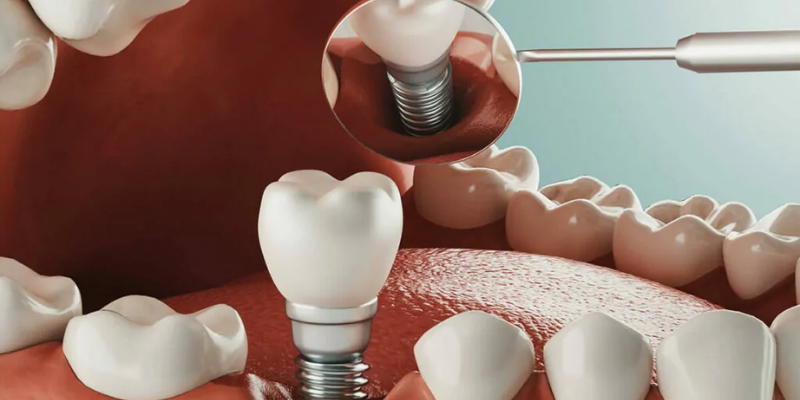Dental Implant Grants
Dental implant grants are a really trendy topic these days. It is vital to discover a way to replace the lost teeth owing to different factors. The teeth operate together by being side by side and on top of each other, according to their form and arrangement in the mouth. The absence of any of them leads the other teeth to slide, wobble and finally lead to tooth loss. In order to fill the gap as a consequence of tooth loss, other teeth start to migrate in time, and tooth loss accelerates in time.
Thus, the patient starts to suffer both improper dietary and cosmetic difficulties. In bridge applications to be made instead of the implant, the bridge may break as a consequence of the patient’s gingival recession or not applying adequate dental care. In this instance, the issues will not be fixed and will expand rapidly.
The density of the bone is also a factor in the application of dental implants. Bone density might deteriorate as a result of advancing years, certain medical conditions, or long-term usage of drugs. Bone powder must be used in these situations. Dentists strengthen the dental implant throughout the procedure to ensure that it integrates with the bone more quickly and effectively. During the course of a patient’s other operations, gingival surgery is done to prevent tooth loss owing to gingival recession. Gingival surgery results in a stronger dental implant and an improved over-implant prosthesis in the end.
Dental Implant Grants Review
People who have lost all of their teeth due to trauma might benefit from dental implants, which can improve their quality of life and their ability to eat normally. Fear of the dentist is a common reason for toothlessness, although most individuals who have dental treatment are pleased with the process from start to finish. A toothless mouth will cause facial skeleton distortion and skin drooping, thus the patient regrets not having it done earlier.
Local anesthetic and sedation may use to perform dental implants. In advance of sedation, an anesthesiologist will examine the patient’s medications and may order a few blood tests. When a patient is in good enough health to undergo surgery, a certain day is allotting for it. Patients are delighted with the results of sedation-assisted implant surgeries. They can’t form a negative association with the implant since they don’t experience any side effects like tension, pain, or discomfort.
Currently, a full denture is attached to four dental implants in the lower and upper jaws. As long as the patient’s bone density and palate aren’t compromising, the procedure may proceed. During the insertion and removal of complete prostheses, the total prosthesis on the palate with four implants does not need the patient’s involvement. It’s a great way to unwind in a social setting.
Dental Implant Grants Treatment
Structures that go unused throughout time deteriorate due to the nature of living things. With no teeth, the jawbones continue to soften and dissolve over time owing to the lack of stimulation. Over time, the gingiva (the tissue that covers the bone next to the bone) shrinks as the jawbone melts away. For those who have lost one or more teeth, an implant is a better option since it mimics the structure of a natural tooth. Gums, lips, and facial muscles all emerge as a result of maintaining bone structure. In the case of a single missing tooth, attempting to replace it with a bridge would only cause the bone and gum tissue around it to deteriorate more. It is making it impossible to keep.
Implantation is a surgical operation, thus the patient’s overall health must be adequate. Without addressing the underlying health issue, implant application is not possible in instances such as metabolic bone abnormalities, uncontrolled diabetes mellitus, mental illness (individuals who cannot maintain their own dental care), active chemotherapy-radiotherapy, and similar conditions.
Dental Implant Grants Procedure
Titanium is the primary metal use in the implant. Titanium is a substance that is entirely compatible with the soft tissues around the jawbone and teeth. In the case of metal-containing implants, the claim may be legitimate for those made to save costs. Implants rich in titanium and of good quality have no risk of this condition, hence the assertions are baseless. This assertion has not been substantiated by any study.
Whether the teeth are connecting or not, implants are placing in the mouth to function as structures that these prostheses will hang on to. It is preventing detachable prostheses from falling out of the mouth during activities such as eating, speaking, and chewing if there is no implant planning. Waiting 3 months after the lower jaw implants are placing and 4 months after the upper jaw implants are placing before moving on to the prosthesis stage is the basic notion. When the bone powder isn’t enough, the process may take a little longer if bone creation surgeries or implants are using.
The implant keeps the jawbone from eroding away. There is no need for adjacent teeth to cut as in a bridge procedure. Neighboring teeth retain their normal shape. The implant and the covering that covers it are feeling by the patient as if they were his or her own teeth. Its use in the front parts offers mostly aesthetic actions. Such as cutting and plucking when chewing, while its use in the posterior regions gives healthy and efficient nutrition. The gingiva around the jawbone is shielding from injury by the jaw’s protective covering. Wearing comfort, successful chewing, eating, and speaking are all advantages of implant-supported detachable prostheses for patients.
Dental Implant Grants Review
An implant’s stability comes from the fact that it is permanently affixing to your jawbone. Implant-supported dentures and bridges stay put in your mouth, which is a major benefit while eating and conversing. Dentures and bridges, as well as individual crowns, put on implants, seem more natural because of their solid fit…
Sore areas, weak bones, or a gag reflex may make bridges and dentures uncomfortable or even impossible for certain individuals. It is also necessary to connect a conventional bridge on both sides of the lost tooth. Implants eliminate the need to prepare or file neighboring teeth in order to retain dentures in place, which is a major benefit. Implants can only place in people who have healthy gums and enough bone to support them. Maintaining these buildings is just as important as building them in the first place. The long-term success of dental implants is dependent on meticulous oral care and frequent dental checkups.
Why Choose Clinica, Hair Transplant Turkey?
Clinica Hair Transplant Turkey is the perfect choice for anyone looking for a safe, reliable, and proven hair transplant service. Founded in 2017 in Antalya, Clinica has quickly become one of the most sought-after names in the industry, offering an array of treatments to meet all types of needs. This includes FUE Method and DHI hair transplant techniques, as well as non-surgical treatments like PRP and mesotherapy. Clinica also offers services like rhinoplasty, dental, teeth whitening, and cosmetics, including surgical and/or non-invasive procedures.

Moreover, their team consists of highly experienced and qualified surgeons who specialize in hair restoration procedures. All Clinica services are tailored to provide excellent results with minimal downtime and natural-looking outcomes. With its state-of-the-art facilities and high dedication to client safety and satisfaction, Clinica continues to be an industry leader for those looking for quality hair restoration solutions. It is no wonder that Clinica’s name is becoming synonymous with successful hair transplants worldwide.
If you’re thinking about getting a hair transplant, look no further than Clinica Hair Transplant Turkey! Contact Clinica hair transplant Turkey today to book a free consultation and meet an expert in the field.





